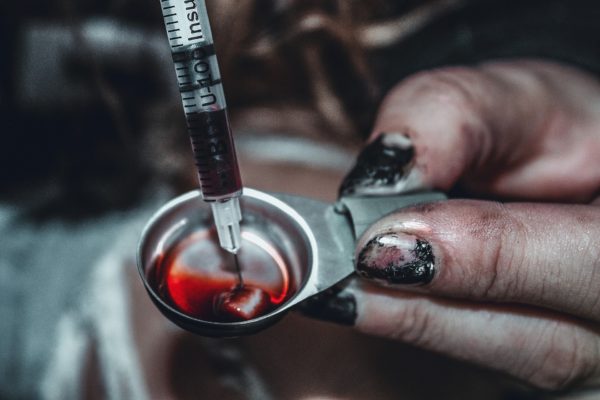Democrats would never allow just anyone to have access to firearms under the pretense that those inclined to commit suicide would instead ask for help. Nor would they presume that the manic or psychotic would call a helpline instead of shooting up the nearest gun-free zone. But when it comes to drugs?
In 2021, Oregon passed measure 110, with the publicly stated objective that removing the stigma of drugs like heroin and fentanyl would encourage users to seek treatment. By making them legal, users would feel unburdened by any negative connotations about addictions and get clean.
At least, that’s how they sold it. And the voters in Oregon bought it until they didn’t.
As expected, things quickly went sideways. In the first year, overdose deaths rose 200 percent. The character of the homeless population promptly evolved from “older drunks” to the “young and belligerent.” Human nature had, once again, taken progressive policy to the mat and beaten its scrawny little ass.
As I observed back in 2022, when news of the overdose death numbers hit the streets,
The obvious question is, who, if anyone, thought this would go some other way? And was that even the intention? The political left is obsessed with unraveling society like a ball of string. Their utopia is impossible until they’ve wrecked everything. Add to that their not-so-recent obsession with eugenics, social engineering, depopulation dogma, and a 216% rise in drug overdose deaths, says a feature, not a bug.
If it comes from the party of death, death follows, but there are those among them – useful idiots perhaps – who imagined a different outcome.
Under Measure 110, addicts are given “tickets” for drug offenses that result in $100 fines, The Telegraph reported. However, the penalty would be waived if the addict rang a self-help line and sought treatment.
Around 6,000 people were ticketed in Oregon, but fewer than 125 rang the self-help line, Eugene’s Police Chief, Chris Skinner, told The Telegraph.
“We don’t have even really one successful example of somebody that went from a citation issued on the street to self-assessment to addiction services to a place of wellness,” Skinner told the Eugene City Council.
Skinner warned that Oregon was “on pace to shatter the record for overdose calls for service and shatter the record for overdose deaths. Police officers and firefighters are administering Narcan, life-saving Narcan at an alarming rate,” according to The Telegraph.
Any guess as to whether the makers of NARCAN lobbied in favor of Measure 110? I didn’t look, but it feels right. I’ll also remind you that in 2023, Oregon expanded medically assisted suicide for every one from anywhere: drug tourism and Death tourism.
Given the predictable transition in other places that adopted state-sponsored death and empathy, mission creep is inevitable. It starts with the chorus of “Feelings” for the terminally ill with chronic pain, then makes a Swiftian leap to include the poor, the homeless, mental health patients, addicts, and even the autistic. Killing people becomes not just a plank in the Democrat party platform but a public good.
Everyone becomes a fetus. A lump of cells in the womb of society without whom the world might be a better place, and government counselors are standing by to help you with the consent forms.
I’ve always thought that Measure 110 was meant to break off another corner of the culture. Create dependents. End lives. And if I’m right, it has been a resounding success, wherein the problem lies. While most Oregonians supported Measure 110 before it passed, a majority want it repealed. But so much damage has already been done, and Oregon is not just one more Narcan vending machine away from “recovery.” Oregon broke the fourth wall, and other states with party-of-death majorities will want to be cool like them.
Besides, who cares what the voters think? They don’t know what’s good for the government.
Blue States, not Oregon, will consider the program. If they can normalize the culture around drug use, it will be easier for users to seek the help they need. And why not? They’ll convince themselves that this time, in that state, it will work, which (again) depends on what you mean by “work.”
If the goal is to create dependency and ruin once-productive people, families, and lives, then this might be the thing you’re looking for, but it’s not going to reduce drug abuse. Even Oregon can see that.
